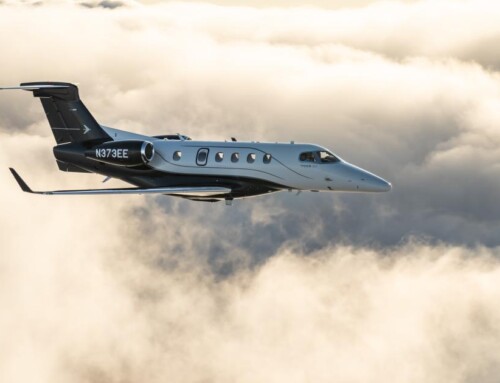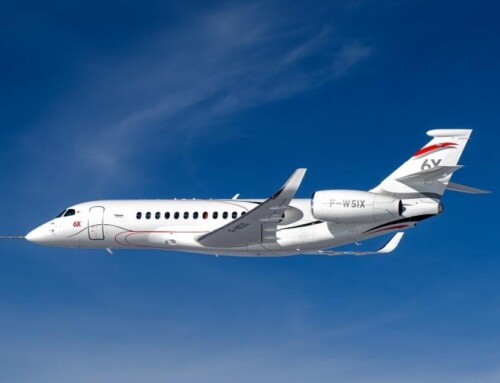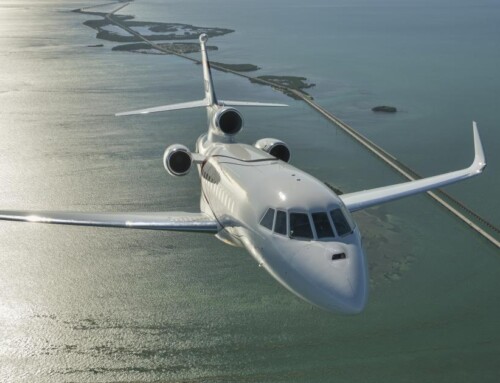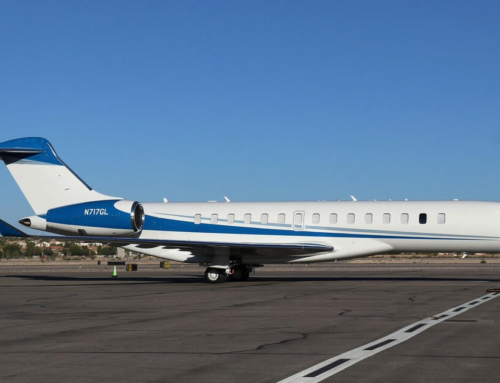Jet Edge’s newly coined AdvantEdge charter and management program aims to provide predictable revenues and schedules. (Photo: Jet Edge)
A day after KKR announced its $4.5 billion acquisition of Atlantic Aviation, the investment firm is further extending its reach into the business aviation market with the provision of a $150 million credit facility for aircraft charter, management, and brokerage firm Jet Edge.
The facility will provide backing as Van Nuys, California-based Jet Edge formally rolls out its AdvantEdge charter management program that CEO Bill Papariella said will further enhance the company’s efforts to expand nationally and add predictability to the ownership experience. In addition, the credit facility will help Jet Edge roll out new digital technologies this year for its client base and strengthen its employment base, which now tops 700.
Papariella called the Jet Edge AdvantEdge program a “whole aircraft ownership solution that is a true alternative to both fractional ownership and the antiquated traditional aircraft management model.” The program, he said, will build predictability and the ability to forecast usage and revenue for owners.
Describing the program as a cross between whole ownership and fractional with scheduling closer to that of an Airbnb, Papariella told AIN the program essentially packages a number of services that Jet Edge has been building out in recent years and “truly takes our charter/management product nationwide.”
The company has been running a number of aspects of the charter and management program since 2018 and built on that with the acquisition of Jet Select announced in early 2020. “We’ve already seen the success over the three years and proved it. AdvantEdge, in more of an institutional way, builds the infrastructure around it.”
Heading into the pandemic, Jet Edge had 15 owners on board. Now that has grown to 67 as it unveils the newly coined AdvantEdge program.
Under the program, owners establish a schedule for blocks of time that their aircraft will be available for charter. Jet Edge will schedule charter accordingly. The program comes with tiers: Edge 250+ (14 weeks, at least 250 charter hours), Edge 500+ (28 weeks 500+ charter hours), and Edge 900 (52 weeks, 900+ charter hours).
Jet Edge chief commercial officer Jonah Adler said this model fills a need in the management model for predictability. Rather than offering aircraft on an ad hoc basis and hoping revenue comes in, owners are blocking off time frames that Jet Edge then will be able to prefill.
“The nature of the charter and management business has traditionally been lumpy in terms of revenue in how and when it comes in,” Adler told AIN. “The whole aircraft ownership experience, from a purely financial perspective, has typically been very unpredictable. We’ve felt that frustration for owners over the years and knew there was an opportunity to do something different, and this is our answer to that.”
AdvantEdge program owners will have preferred access to the company’s Reserve charter membership program that can provide supplemental access across a diverse fleet of aircraft.
Owners can bring their own aircraft into the program or Jet Edge, through its brokerage business, will help find an aircraft for the owner, Adler said. In Spring 2019, Jet Edge took steps to expand its brokerage business and now has become a major presence in the market with more than $2.5 billion transactions to date.
While each will be different—unlike the fractional and some other large fleet operators—AdvantEdge aircraft must have a commonality with the Jet Edge fleet, which includes Bombardier Challengers and certain Gulfstream, Dassault Falcons, and Embraer Legacy jets. In addition, cabin interiors must meet certain standards and certain equipage, such as Wi-Fi packages. But unlike the traditional charter and management approach, Jet Edge will buy back its brokered airplanes if an owner wants to depart the program.
While the program gained momentum through the pandemic, Papariella said Jet Edge’s goal is not to become the largest fleet operator, but would rather grow in airplane utilization. “I don’t want to be 180 planes, 200 planes,” he said, noting to get to those fleet levels, charter hours would suffer per aircraft. “I’d rather have 60 owners that we perform to and they perform for us. I’m looking to go up in flight hours but stay smaller in asset management. If an owner says they want 300 hours of charter, then I want to give it to them.”
As far as obtaining financing during the pandemic, Papariella noted that the pandemic provided an opportunity for companies to show their value. But he also stressed that “private equity is looking at investments for stable companies, firms that have stable balance sheets, and proved through Covid to be resilient.” He noted that Jet Edge operations have been up by about 13 percent through the pandemic.
“Jet Edge has built a reputation as a best-in-class, scaled operator in the private aviation market,” said Dan Pietrzak, partner at KKR. “This transaction continues our asset-based finance strategy of providing long-term funding to leaders in the global aviation sector so they can invest in their businesses and capture opportunities as the market recovers.”
Patrick Clancy, principal at KKR, added: “We have been impressed by Jet Edge’s strong operational capabilities and innovative approach to solving the pain points of private aircraft ownership and chartering.”
Source AIN
 Cessna Citation V
Cessna Citation V









